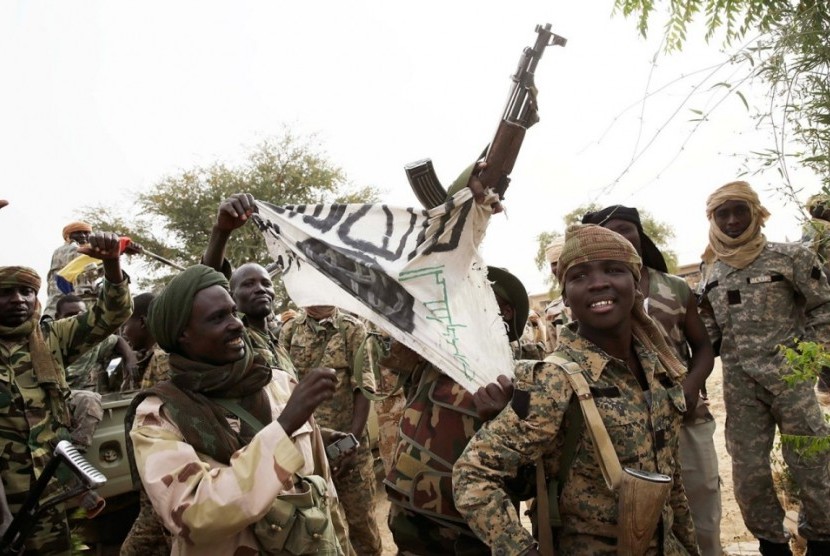REPUBLIKA.CO.ID, UNITED NATIONS -- Boys and girls in northeast Nigeria continue to be brutalized as a result of Boko Haram's insurgency in the region and the ensuing conflict, which is the conclusion of UN Secretary-General Antonio Guterres's first report on children and armed conflict in the West African country, a UN spokesman told reporters here Thursday.
The new UN report documented the impact on children of the severe deterioration of the security and humanitarian situation in the country between January 2013 and December 2016, UN spokesman Stephane Dujarric said at a daily news briefing here.
Virginia Gamba, the special representative of the secretary-general for children and armed conflict, said that Boko Haram has inflicted unspeakable horror upon the children of Nigeria's northeast and neighboring countries.
During the reporting period, attacks by Boko Haram on communities and confrontations between the group and security forces resulted in at least 3,900 children killed and 7,300 more maimed. Suicide attacks became the second leading cause of child casualties, accounting for over one thousand deaths and 2,100 injuries during the reporting period.
"With tactics including widespread recruitment and use, abductions, sexual violence, attacks on schools and the increasing use of children in so-called 'suicide' attacks, Boko Haram has inflicted unspeakable horror upon the children of Nigeria's northeast and neighboring countries," said Gamba.
Nigeria has made a considerable gain on the Boko Haram front, with its security forces operating in the restive region dislodging the Boko Haram fighters from the Sambisa Forest, the group's largest training camp in the country, in January.
The Nigerian security forces have been intensifying aerial and ground patrol in the country's northeast, extending their offensive mission around the Green Belt Region near Niger and Chad.
Boko Haram has killed more than 20,000 people and displaced 2.3 million others since their insurgency started in 2009.
Suicide attacks became the second leading cause of child casualties, accounting for over one thousand deaths and 2,100 injuries during the reporting period.
The United Nations verified the use of 90 children for suicide bombings in Nigeria, Cameroon, Chad and Niger, the majority of whom were girls.
Meanwhile, the world body also verified the recruitment and use of 1,650 children. Testimonies from children separated from Boko Haram indicate that many were abducted, but that others joined the group due to financial incentives, peer pressure, familial ties and for ideological reasons.
In some instances, parents gave up their children to obtain security guarantees or for economic gain.
The children were used in direct hostilities, for planting improvised explosive devices, to burn schools or houses and in a variety of support roles. Schools have been targets of choice for Boko Haram and the UN estimates that 1,500 were destroyed since 2014, with at least 1,280 casualties among teachers and students.
The response to Boko Haram's insurgency also generated protection concerns, including allegations of extra judicial killings.
The UN documented the recruitment and use of 228 children, including some as young as nine by the Civilian Joint Task Force (CJTF), created in Borno state to assist the Nigerian Security Forces.
Children were used mainly for intelligence-related purposes, in search operations, night patrols, for crowd control and to guard posts.
Gamba urged all parties to abide by their obligations under international humanitarian, human rights and refugee law and to ensure civilians are protected during armed clashes.


